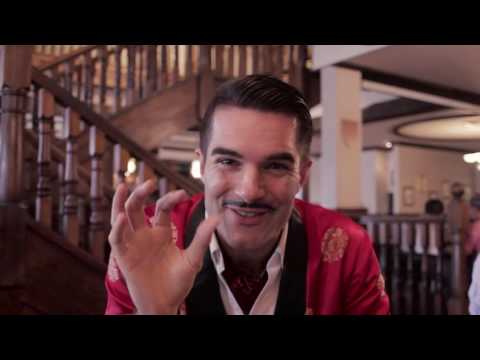Why Back to Life is Genius
By Dan Page.
Back to Life is genius.
The acting, the writing, the cinematography, the up-close and personal sound….everything is simply brilliant. I am in awe of Daisy Haggard, Laura Solon and the whole cast and crew.
But the thing I like most about Back to Life, and arguably why it works so well, is how it breaks a commonly accepted wisdom around the way main characters tend to act and behave.
You see, Miri Matteson doesn’t make bad decisions.
Most, if not all, sitcom plots revolve around an opportunity arising or a problem occurring (the ‘inciting incident’) which the main character(s) subsequently make a series of questionable (if not downright awful) decisions about in their attempt to gain glory or avoid disaster, along the way reaping the (often negative) consequences of their choices. And it’s usually a bumpy ride, with each character suffering along the way.
Really? Is that true? I’d argue self evidently so.
If in each Only Fools episode Del Boy saw an opportunity to make a quick buck then made a really good decision which resulted in him getting the money, before deciding to put it safely in the bank rather than wasting it on a hare-brained scheme, then by episode 12 he’d be a millionaire and the show would be over. Equally if any of the characters in Friends stopped telling increasingly bigger lies that spin out of control (arguably the plot of most episodes), then the show wouldn’t have been half as fun.
And these decisions often come about because of the character’s main flaw. The thing that prevents them from ever really reaching their goal. Lister’s laziness means he’ll never become a better person, Fleabag’s selfish anxiety means she’ll always struggle with relationships, and Sheldon’s lack of empathy means he’ll never become as well respected as Einstein.
But in Back to Life, arguably the only bad decision Miri Matteson makes is cutting her fringe badly. EVERYTHING else she does makes sense in the context of her mission to make sense of her life and the world she finds before her. Equally Miri doesn’t really have an obvious flaw. In fact, she’s tremendously likeable, pragmatic and sensible and does a pretty good job of saying and doing sensible things.
Yet despite all this, Miri Matteson suffers EACH and EVERY episode.
So why is this? Why does a genuine, well-intentioned, sensible, clear-thinking character suffer? And how do writers Daisy Haggard and Laura Solon pull off this trick?
Four reasons:
- Every other character (bar one) thinks that Miri is a bad person who does bad things. They’d already made up their mind. So it doesn’t matter what Miri says or does – they simply won’t believe her (even her parents struggle with this). Which means it doesn’t matter if she is flawed or not – everyone else believes she is.
- Every other character (bar one), does make bad decisions driven by their flaws. Her selfish mother can’t stop her affair with Miri’s sex-mad (and now married) ex-boyfriend Dom. Her obsessive compulsive dad focuses on rituals and rules in order to avoid facing up to reality, naive businessman Nathan can’t even run a fish and chip shop in a seaside town (and hires the most hated woman there to work in it) and best friend Mandy lies to herself and everyone else to deflect from her past. And the consequences of THEIR actions are affecting everyone else, especially Miri.
- Within this ‘mad’ world there are two ‘sane’ characters – Miri herself and next door neighbour Billy. By giving us two rational people trying to do sensible things for the right reasons in amongst a town’s worth of flawed fools, the writers generate both difference and heart. The former being the engine room of comedy, the latter of likeability. And both of which combine to give pathos. Crucially though, even though Miri discovers Billy to be an island of solace in a sea of hate, her relationship with him is still complicated and painful.
- Arguably the biggest reason why Miri suffers every episode is because she did make ONE very bad decision in the past. And it’s the consequences of this decision that constantly (and indeed will forever) spill over into her life. So perhaps Miri is, after all, a classically flawed sitcom character, with all her bad decisions rolled into one.
And yet to argue this last point would, in my opinion, itself be flawed.
For it’s revealed over time that Miri’s ‘poor’ decision in the past was (spoiler alert) both not of her own making and not in itself a bad decision. You and I would probably do the same in the situation she faced. To emphasise this, Miri finds herself put under pressure in another situation that results in a similar outcome. And yet once again, her actions are honest and not ill-willed, but an understandable decision when backed into a corner, as opposed to some inherent flaw-driven reaction that singles her out from anyone else.
So the way I see it, Miri Matteson doesn’t make bad decisions. And in virtually any other sitcom this would be a bad decision. But here it’s…well…genius.
Dan Page is a writer, script-editor and Chief Egg at Why Did The Chicken? where he offers professional script-notes, 1-2-1 mentoring and original, talent led content. Say hello via dan@whydidthechicken.com.
His new show The DesignSpark Podcast explores the comedy past, present and future of some of the hottest topics in tech. Episode 1 launches May 20th on iTunes, Podbean and Spotify.




